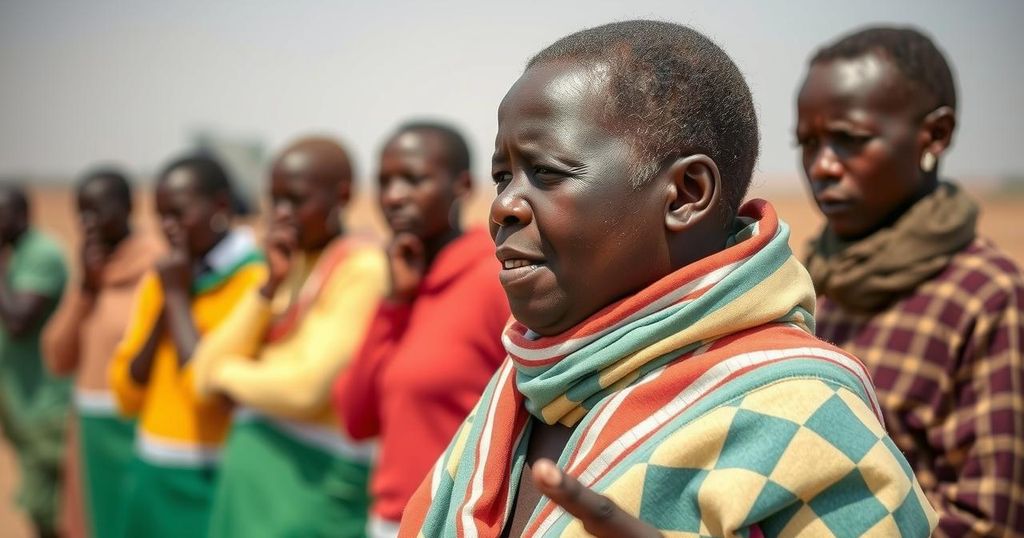The Sudanese government has rejected a UN report declaring famine in five regions due to the ongoing military conflict. The Integrated Food Security Phase Classification (IPC) identified 638,000 people facing famine and highlighted widespread food insecurity affecting over 24.6 million individuals. The government claims the findings lack proper data and transparency, while humanitarian agencies warn of deliberate obstructions to aid efforts in the war-torn country.
The Sudanese government has firmly dismissed a United Nations-backed report that claims famine conditions have emerged in five regions of Sudan due to the ongoing conflict between the national army and the paramilitary Rapid Support Forces (RSF). According to the Integrated Food Security Phase Classification (IPC) review, approximately 638,000 individuals are currently experiencing famine, with an additional 8.1 million on the brink of mass starvation. The Sudanese foreign ministry labeled the IPC’s findings as speculative and stated that the agency did not have proper access to updated data or engage with the government’s technical team for input prior to publication.
The ruling authorities, centered in Port Sudan since April 2023, have faced accusations of obstructing international assessments of the dire food crisis. Reports from the International Rescue Committee indicate that the army has been intentionally preventing the UN and other humanitarian organizations from providing aid to areas controlled by the RSF, contributing to further humanitarian complications. Both warring factions have been implicated in the strategic use of food deprivation as a tactic in their ongoing conflict. As a result, over 24.6 million Sudanese, roughly half of the population, endure acute food insecurity, exacerbated by the humanitarian toll of the war, which has led to tens of thousands of casualties and displaced over 12 million people.
The current humanitarian crisis in Sudan stems from an intense conflict that erupted in April 2023 between the Sudanese military and the RSF. This power struggle has not only destabilized the country but has also severely impacted food security. The IPC’s assessments are critical tools for gauging food insecurity in crisis situations, and their reports are typically relied upon by international aid organizations to inform their responses. The Sudanese government’s rejection of the IPC’s latest findings underscores ongoing tensions and challenges faced by humanitarian efforts amidst a deteriorating situation.
In summary, the Sudanese government’s refusal to accept the United Nations-backed findings of famine affecting millions highlights both the severity of the food crisis in the country and the administration’s ongoing resistance to international intervention. With almost half the population experiencing acute food insecurity and the humanitarian situation worsening, it remains crucial for the international community to remain engaged and push for unimpeded access to aid in conflict-affected areas.
Original Source: jordantimes.com






